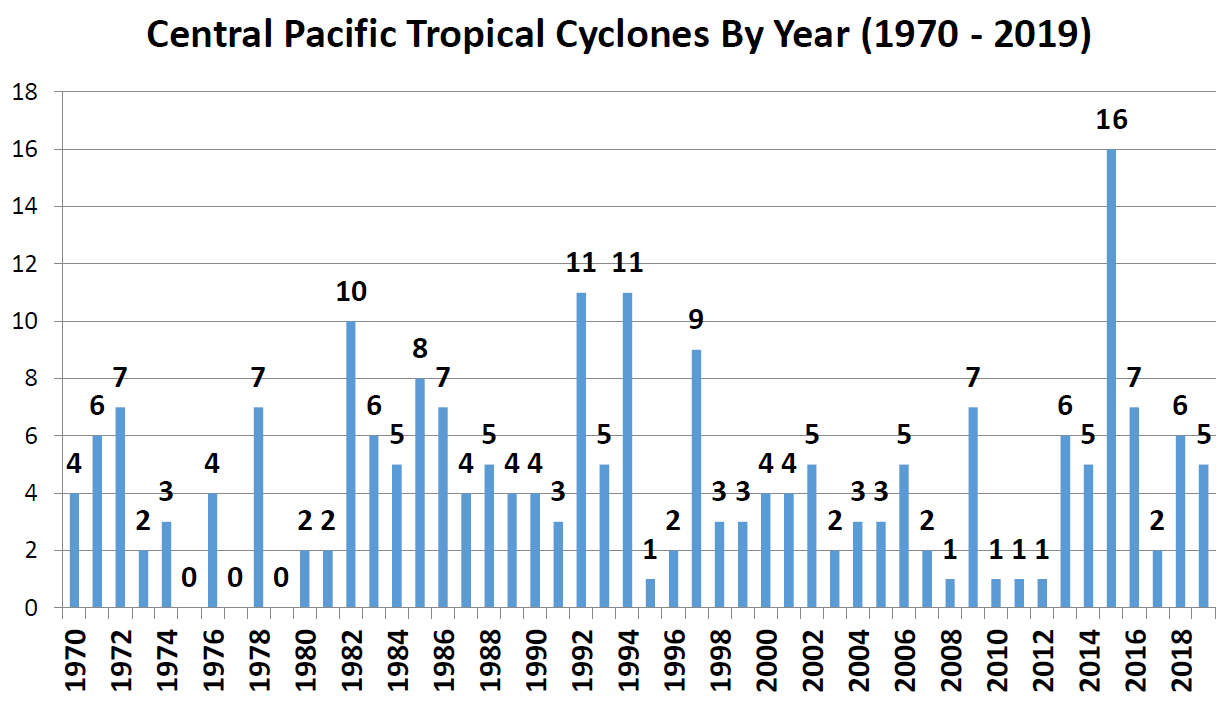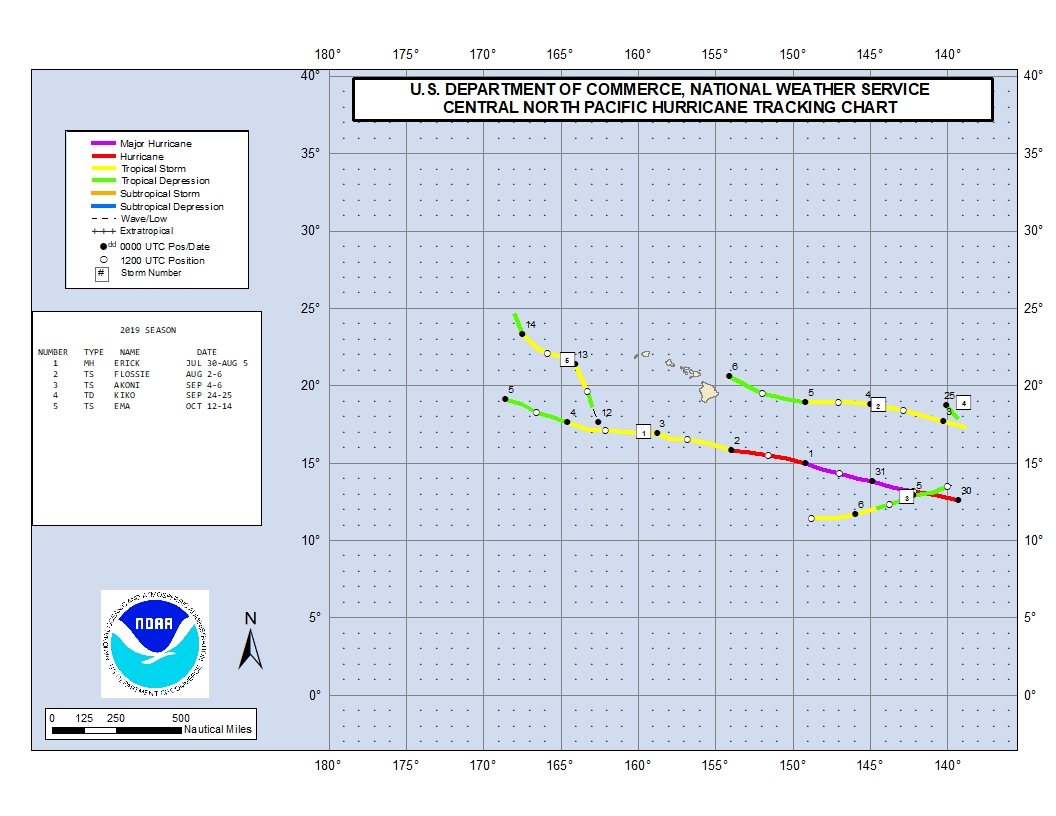The 2019 hurricane season featured five* tropical cyclones in the Central Pacific Hurricane Center (CPHC) area of responsibility, which is near the season average. Hurricane season runs from June 1 to November 30. The Central Pacific basin extends from 140°W to the International Date Line. Four to five tropical cyclones occur during an average year.
Hurricane Erick was the first tropical cyclone of the season in the Central Pacific, moving into the basin from the east on July 30. Erick rapidly intensified to a major hurricane (category 4 on the Saffir-Simpson Hurricane Wind Scale) later that day, then steadily weakened as it passed far south of the main Hawaiian Islands. Tropical Storm Flossie entered the basin on August 3 and approached Hawaii from the east, eventually dissipating before reaching the islands. Tropical Depression 12-E entered the basin on September 4 and strengthened to Tropical Storm Akoni. Akoni was the first tropical cyclone to be named from the Central Pacific list of names since Hurricane Walaka in 2018. Tropical Depression Kiko* entered the basin on September 24 and immediately dissipated. Tropical Storm Ema, the second cyclone to be named from the Central Pacific list of names, developed southwest of the main Hawaiian Islands on October 12. Ema dissipated over the southern portion of the Papahanaumokuakea Marine National Monument shortly before crossing between French Frigate Shoals and Maro Reef.
Impacts to the State of Hawaii: Swells from Tropical Cyclone Barbara, which dissipated just before crossing into the Central Pacific basin, led to high surf along east facing shores of the state during July 6-9. Remnant moisture from Barbara also led to heavy rain across Maui and Hawaii Counties during July 8-11. Swells generated by Tropical Cyclones Erick and Flossie led to high surf along east and south facing shores during August 1-6. Moisture associated with Erick also contributed to heavy rain over Hawaii County on August 2, and across Kauai County during August 4-5.
Hurricane Season Outlook: NOAA’s 2019 hurricane season outlook issued on May 22, 2019, called for five to eight tropical cyclones in the Central Pacific basin, with a 70% chance of above-normal tropical cyclone activity, a 20% chance of near-normal activity, and a 10% chance of below-normal activity. The 2019 season started with an El Niño event that was expected to last through the fall. Instead, steady cooling commenced early in the summer leading to neutral conditions by the heart of the hurricane season.
The following table outlines tropical cyclone names and highest classification, life cycle dates, and maximum wind speeds while in the central Pacific basin.
| Name | Dates (UTC) | Max Wind (mph) |
|---|---|---|
| Major Hurricane Erick | July 30-August 4 | 130 |
| Tropical Storm Flossie | August 3-5 | 60 |
| Tropical Storm Akoni | September 4-6 | 40 |
| Tropical Depression Kiko* | September 24 | 35 |
| Tropical Storm Ema | October 12-14 | 50 |
* Post-season analysis indicated that Kiko had dissipated before crossing into the Central Pacific basin, lowering the season total to four tropical cyclones. (note added 1/13/20)
Annual Comparisons (including out of season tropical cyclones):

2019 Hurricane Season Tropical Cyclone Track Map (Preliminary):

Additional graphics from our social media links:
NWS Honolulu Facebook - https://www.facebook.com/NWSHonolulu
NWS Honolulu Twitter - https://twitter.com/NWSHonolulu
Other useful web links:
NOAA Central Pacific Hurricane Center - https://www.hurricanes.gov/cphc
NOAA National Weather Service Forecast Office Honolulu - https://www.weather.gov/hawaii
CPHC Tropical Cyclone Product Archive - https://www.nhc.noaa.gov/archive/2019/
CPHC Annual Summaries - https://www.nhc.noaa.gov/data/tcr/?basin=cpac
NOAA Atlantic Hurricane Season Summary for 2019 -
https://www.noaa.gov/media-release/active-2019-atlantic-hurricane-season-comes-to-end